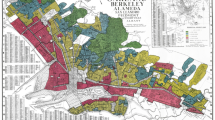Abstract
The objective of the study was to analyze the foster family as a tool of the social security system for elderly persons in remote northern territories. We discuss the significance of pre-existing long-term relationships for the building and microclimate of the foster family, the relationship with the living environment as a socio-psychological support for reducing (eliminating) the risk of loneliness, and social inclusion in society through the foster family. It is noted that legally consolidated efforts of the state and family at the regional level respond more rapidly to changing needs for various types of services, taking into account local socio-economic opportunities and cultural traditions, which helps to diversify the number of forms of services that directly affect risk reduction and meet the needs of elderly persons. It is shown that the uncertainty associated with the provision (accessibility) of care services (palliative care) to chronically sick people in old age and with decent death is a risk in remote northern territories.
Similar content being viewed by others
REFERENCES
Anisimov, V.N., Serpov, V.Yu., Finagenov, A.V., and Khavinson, V.Kh., A new stage of development of gerontology and geriatrics in Russia: problems in creation of a geriatric-care system. Part 1: Relevance and regulatory framework, Usp. Gerontol., 2017, vol. 30, no. 2, pp. 158–168.
Butueva, Z.A., The development of family forms of social care for older people, Vestn. Buryat. Gos. Univ., 2015, no. 5, pp. 96–101.
Vasil’chikov, V.M. and Chikarina, L.Ya., An adoptive family for an elderly person: state policy and regional practice, Trud Sots. Otnosheniya, 2013, no. 10, pp. 16–21.
Golubeva, E.Yu., Danilova, R.I., Kondratova, E.I., and Koskinen, S., The interaction and responsibility of the family and the state in care for the elderly people in Russia and Finland: a cross-cultural context, Klin. Gerontol., 2008, vol. 14, no. 5, pp. 3–10.
Golubeva, E.Yu., Khabarova, L.G., and Solov’ev, A.G., The adoptive family as a new technology of care in the policy of active aging in the remote northern territories, Ekol. Chel., 2017, no. 11, pp. 42–46.
Golubeva, E.Yu. System analysis of factors affecting the quality of life of aged people in their use of different forms of social services, Adv. Gerontol., 2016, vol. 6, no. 4, pp. 338–342.
Zakon Arkhangel’skoi oblasti ot 21.11.2011 g., no. 382-26-OZ “O priemnykh sem’yakh dlya grazhdan pozhilogo vozrasta i invalidov v Arkhangel’skoi oblasti” (The Law of Arkhangelsk Oblast No. 382-26-OZ of November 21, 2011 “About Foster Families for Senior Citizens and People with Disabilities in the Arkhangelsk Oblast”), Arkhangelsk, 2011.
Kornilova, M.V., Quality of life and social risks for the elderly people, Sovrem. Issled. Sots. Probl., 2011, vol. 7, no. 3, p. 76.
Kornilova, M.V., Social services as a method to protect Moscow elderly residents from social risks, Sots. Polit. Sotsiol., 2017, vol. 16, no. 3, pp. 112–119.
Who should care of us in elderly? NAFI Research Center. http://old.ageing-forum.org/ru/kto-dolzhen-zabotitsya-o-nas-vstarosti/. Accessed March 20, 2016.
Maksimova, S.G., Noyanzina, O.E., Omel’chenko, D.A., and Goncharova, N.P., The model of interrelation of social risks, deviations, and social security, Izv. Altai. Gos. Univ., 2013, vol. 2, no. 78, pp. 225–229.
Press Center of the Government of the Arkhangelsk oblast. http://dvinanews.ru/m#/-8vkzvr8u. Accessed April 14, 2018.
Puzikov, A.E., Social security in the theory of social work, Otech. Zh. Sots. Raboty, 2009, no. 2, pp. 20–25.
Statistics of Arkhangelsk oblast. http://arhangelskstat.gks.ru/wps/wcm/connect/rosstat_ts/arhangelskstat/ru/statistics/population. Accessed March 29, 2018.
Action strategy for Senior Citizens until 2025, Order of the Government of the Russian Federation no. 164-r of February 5, 2016. http://base.garant.ru/71322816. Accessed September 20, 2016.
Shraga, M.Kh., Sotsial’naya bezopasnost’ v teorii zdorov’ya (Social Security in the Health Theory), Arkhangelsk, 2009.
Ghiga, I. and Golubeva, E., Russian Federation: foster families for older people in remote northern Russian territories, Research Report of WHO Program “Community-Based Social Innovations for Healthy Ageing.” https://extranet.who.int/kobe_centre/sites/default/ files/pdf/Appendix_C_CBSI_Case_Studies_FINAL_ lowbandwidth_0.pdf. Accessed January 19, 2019.
Moran, D., Forestry villages in the Russian North—social capital and subsistence at the margins, Belgeo, 2001, no. 3, pp. 199–214.
UNECE Policy Brief No. 18: Older Persons in Rural and Remote Areas. http://www.unece.org/population/ageing/policybriefs.html. Accessed April 14, 2017.
Ziemba, R., Family health and care of older adults: universal solutions to unique caregiving challenges, Michigan Family Rev., 2016, vol. 20, no. 1, pp. 15–25. https://doi.org/10.3998/mfr.4919087.0020.104
Author information
Authors and Affiliations
Corresponding authors
Ethics declarations
Conflict of interests. The authors declare that they have no conflict of interest.
Statement of compliance with standards of research involving humans as subjects. All procedures performed in studies involving human participants were in accordance with the ethical standards of the institutional and/or national research committee and with the 1964 Helsinki Declaration and its later amendments or comparable ethical standards. Informed consent was obtained from all individual participants involved in the study.
Additional information
Translated by M. Novikova
Rights and permissions
About this article
Cite this article
Golubeva, E.Y., Khabarova, L.G. Family Care as a Tool for Mitigating the Social Risks of the Elderly People in Remote Areas. Adv Gerontol 9, 373–378 (2019). https://doi.org/10.1134/S2079057019030056
Received:
Revised:
Accepted:
Published:
Issue Date:
DOI: https://doi.org/10.1134/S2079057019030056




